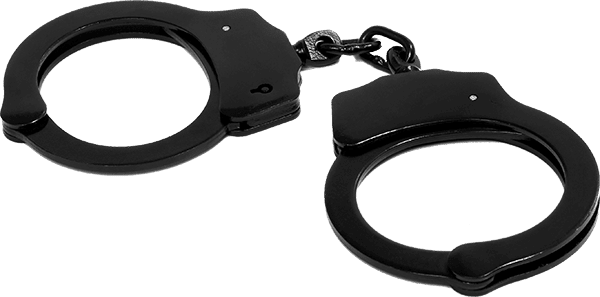Proficient Assault Defense Attorneys in Denver, CO
The consequences of an assault conviction in Colorado is very serious. It’s important to know your rights and have a Denver Assault Defense Attorney on your side of the law to protect your freedom and reputation.
Mandatory Prison for Serious Assaults
Convictions for First Degree Assault and Second Degree Assault carry mandatory sentences to prison. Even if the defendant has no prior criminal record, the judge will have no choice but to impose a prison sentence. In such cases, multiple convictions may also require that the judge sentence each charge consecutively, adding the prison time from each charge.
Self Defense Cases
Self defense is a common defense to the charge of assault, especially in cases where there is no independent witness to the incident. It is important to have someone photograph any injuries the defendant sustained during the incident, as it may turn out to be critical self-defense evidence later on.
Assault is one of the most common criminal charges. Assault is charged by degree, first through third, with First Degree Assault being the most serious. By far the most common of the three types of assault is Third Degree Assault. This is a misdemeanor offense, and because it is labeled an Extraordinary Risk Crime, carries a maximum sentence of two years in county jail.

Here are the possible penalties based on the degree of assault:
Third Degree Assault
First Degree Misdemeanor (M1)
Possible 2 Years
Second Degree Assault
Fourth Degree Felony (F4)
Mandatory 5 Years * – Maximum 8 Years
First Degree Assault
Third Degree Felony (F3)
Mandatory 10 Years ** – Maximum 16 Years
* Unless the court finds Heat of Passion. Some types do not involve mandatory sentencing.
** Unless the court finds Heat of Passion.
Assault in the Third Degree
Third Degree Assault is defined as “knowingly or recklessly causing bodily injury to another person.” (In rare cases, a different definition is used based on accidentally causing injury with a deadly weapon.) Notice that there has to be “injury” in order for the charge to be supported. However, pain, by itself, constitutes injury – even if there was no physical damage to the person assaulted. As shown in the table above, the maximum sentence for this type of assault is two years in the county jail.
Assault in the Second Degree
There are several different definitions of Second Degree Assault. A person will be found guilty if a jury believes that the District Attorney has proven any one of the following definitions beyond a reasonable:
- The Defendant intentionally caused bodily injury to another by the use of a deadly weapon.
- The Defendant recklessly caused serious bodily injury to another by the use of a deadly weapon.
- The Defendant intended to cause any injury, and caused serious injury.
- The Defendant caused injury to anyone while intentionally trying to hinder the police or firefighters.
- The Defendant knowingly applied violent force to (certain) government officials.
- The Defendant intentionally drugged someone without their consent / knowledge.
Definitions numbered 1 through 4 above are considered to be “Crimes of Violence,” and carry mandatory prison sentences following a conviction. In such cases, the judge must sentence the defendant to at least 5 years in prison for Second Degree Assault.
Assault in the First Degree
There are also several different definitions for First Degree Assault. A Defendant will be convicted if a jury is convinced that any one of the following definitions has been proven by the District Attorney:
- The Defendant intended to cause serious injury, and does in fact cause serious injury.
- The Defendant intended to, and in fact did, seriously disfigure or disable another person.
- The Defendant, acting with “extreme indifference to the value of human life,” knowingly created a grave risk of death, and by doing so caused serious bodily injury.
- The Defendant threatened a police officer, firefighter, judge, or prison staff with a deadly weapon, and in doing so caused serious injury.
The sentence for any assault charge will, like all criminal charges, be based in part on how “aggravated” or “mitigated” the facts of the case are. Naturally, acts that seem unusually aggressive or mean-spirited to the judge are more likely to result in jail or prison sentences than are acts that are more minor, or are justified by provocation.
Self defense is a common defense to the charge of assault. The person charged with assault has the right to present evidence that shows that they used violent force in order to protect themselves from the so called “victim” in their case. However, the Defendant is only allowed to use as much force as is justified to defend himself. For example, the Defendant cannot shoot someone in order to avoid being in a fist fight, unless the Defendant can show that the victim would have tried to kill him if not stopped with deadly force.
Call a Denver Assault Defense Attorney Today
If you or someone you know has been charged with assault in Denver, it is crucial to seek the guidance and representation of an experienced assault defense attorney. Assault charges can have serious consequences, including jail time, fines, and a criminal record, so it’s essential to have a skilled lawyer on your side who can fight for your rights and defend your case aggressively. A qualified Denver assault defense attorney can review the details of your case, evaluate the evidence, and develop a personalized defense strategy that suits your unique situation. Don’t risk your future and freedom by attempting to navigate the criminal justice system alone. Contact Churchill Criminal Defense today to schedule a consultation and start building a strong defense for your case.
